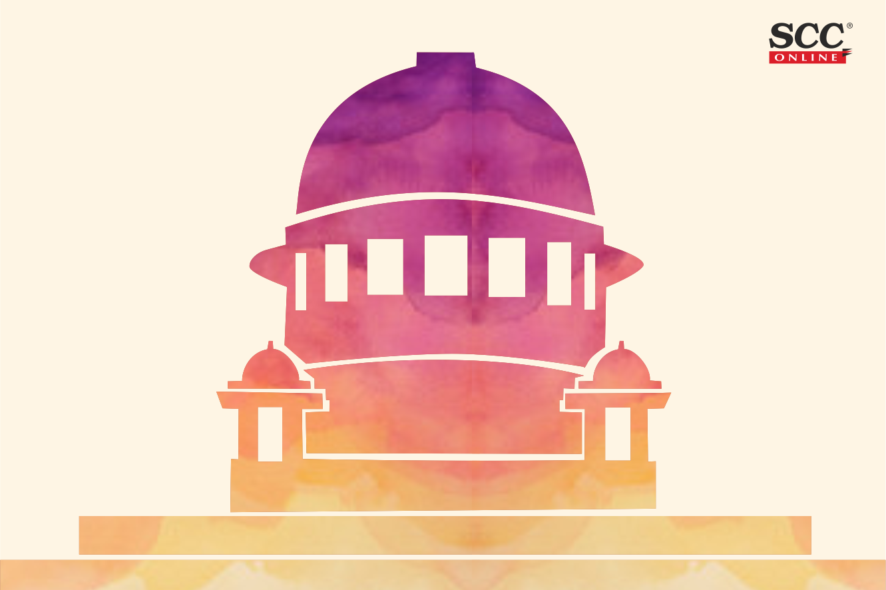Supreme Court: In a case where the party, in a subsequent petition seeking same relief, had not disclosed the filing of the suit, its dismissal by the Civil Court and the confirmation of the said judgment by the High Court in the writ petition, the bench of SA Nazeeer* and Krishna Murari, JJ has held that the appellants did not come to the court with clean hands and stressed that the parties have to disclose the details of all legal proceedings and litigations either past or present concerning any part of the subject-matter of dispute which is within their knowledge.
Factual Background
After lapse of 34 years from 3 the completion of acquisition proceedings and receiving of award amount, the petitioners had filed the present writ petition challenging the allotment of a portion of the land on the ground that the same has not been acquired by the Bangalore Development Authority (BDA).
It was the appellants’ case that since 8 guntas of land had not been acquired, they had partitioned the said property amongst themselves and each of them was in possession of a site formed in this 8 guntas of land. It was argued that when the said 8 guntas of land itself has not been acquired, question of formation of the sites by the BDA in this land and its allotment was illegal.
However, admittedly, the appellants had, in 1999, filed a suit before the Additional City Civil Court against the BDA seeking permanent injunction while pleading identical facts and urging similar grounds. The said suit was dismissed by the trial court. The appeal filed against the said judgment of the trial court was also dismissed by the High Court. The appellants had not disclosed the dismissal of the aforesaid Suit and the appeal in the writ petition.
Analysis
Noticing that the jurisdiction exercised by the High Court under Article 226 of the Constitution of India is extraordinary, equitable and discretionary, the Court said that it is imperative that the petitioner approaching the writ court must come with clean hands and put forward all facts before the Court without concealing or suppressing anything.
“A litigant is bound to state all facts which are relevant to the litigation. If he withholds some vital or relevant material in order to gain advantage over the other side then he would be guilty of playing fraud with the court as well as with the opposite parties which cannot be countenanced.”
In order to check multiplicity of proceedings pertaining to the same subject-matter and more importantly to stop the menace of soliciting inconsistent orders through different judicial forums by suppressing material facts either by remaining silent or by making misleading statements in the pleadings in order to escape the liability of making a false statement, the Court held that
“… the parties have to disclose the details of all legal proceedings and litigations either past or present concerning any part of the subject-matter of dispute which is within their knowledge. In case, according to the parties to the dispute, no legal proceedings or court litigations was or is pending, they have to mandatorily state so in their pleadings in order to resolve the dispute between the parties in accordance with law.”
Important rulings
Prestige Lights Ltd. V. State Bank of India, (2007) 8 SCC 449
It is of utmost necessity that when a party approaches a High Court, he must place all the facts before the Court without any reservation. If there is suppression of material facts on the part of the applicant or twisted facts have been placed before the Court, the writ court may refuse to entertain the petition and dismiss it without entering into merits of the matter.
Udyami Evam Khadi Gramodyog Welfare Sanstha v. State of Uttar Pradesh, (2008) 1 SCC 560
The writ remedy is an equitable one and a person approaching a superior court must come with a pair of clean hands. Such person should not suppress any material fact but also should not take recourse to legal proceedings over and over again which amounts to abuse of the process of law.
K.D. Sharma v. Steel Authority of India Limited, (2008)12 SCC 481
If there is no candid disclosure of relevant and material facts or the petitioner is guilty of misleading the court, his petition may be dismissed at the threshold without considering the merits of the claim.
Ruling
The Court noticed that identical contentions were raised by the appellants in the previous suit and that the said suit was dismissed and the judgment of the civil court was confirmed by the High Court. Hence, since this finding of the High Court has attained finality, the writ court cannot sit in an appeal over the judgment passed by the High Court in the appeal.
Hence, the conclusions reached by the court in the appeal were held to be binding on the appellants.
[K. Jayaram v. Bangalore Development Authority, 2021 SCC OnLine SC 1194, decided on 08.12.2021]
Counsels
For appellants: Senior Advocate Prof. Ravivarma Kumar
For BDA: Advocate S.K. Kulkarni
*Judgment by: Justice SA Nazeer






